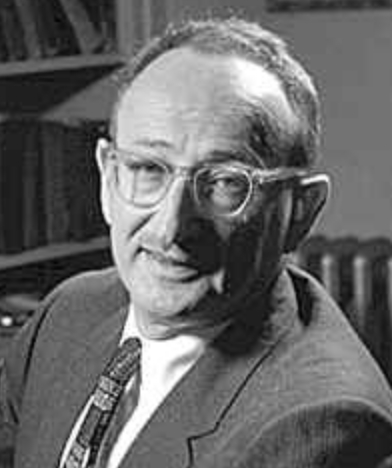On this date in 1902, philosopher Sidney Hook was born in Brooklyn, N.Y., to Jennie and Isaac Hook, Austrian Jewish immigrants. He became a supporter of the Socialist Party during the Eugene Debs era when he was in high school. He graduated from the City College of New York with a bachelor’s degree in 1923 and earned a Ph.D. from Columbia University in 1927, where he studied under John Dewey.
Hook became a professor of philosophy at New York University (1927-69) and served as department head from 1948-69. He ended his academic career as a senior research fellow at the consevative Hoover Institution at Stanford University (1973-89). He embraced Marxism but later became a staunch anti-communist.
His books include The Metaphysics of Pragmatism (1927), Toward the Understanding of Karl Marx (1933), Marx and the Marxists: The Ambiguous Legacy (1955), Common Sense and the Fifth Amendment (1957), The Quest for Being, and Other Studies in Naturalism and Humanism (1961), The Place of Religion in a Free Society (1968), Pragmatism and the Tragic Sense of Life (1974), Marxism and Beyond (1983) and his autobigraphy Out of Step: An Unquiet Life in the 20th Century (1987). He was awarded the Presidential Medal of Freedom in 1985.
He married Carrie Katz in 1924, with whom he had one son. He married Ann Zinkin in 1935 and they had a son and a daughter.
Letters of Sidney Hook: Democracy, Communism, and the Cold War (1995, ed. Edward S. Shapiro) details how it was irrational to believe in the existence of a merciful and powerful God in the face of widespread human misery. Only his parents’ entreaties that he not embarrass them in front of friends and family convinced him to participate in a bar mitzvah at age 13. He had already declared his agnosticism.
People frequently asked him in his later years what he would say if he discovered after death that God really existed. He answered that he would simply state, “God, you never gave me enough evidence.” He died at age 86 in Stanford, Calif. (D. 1989)


